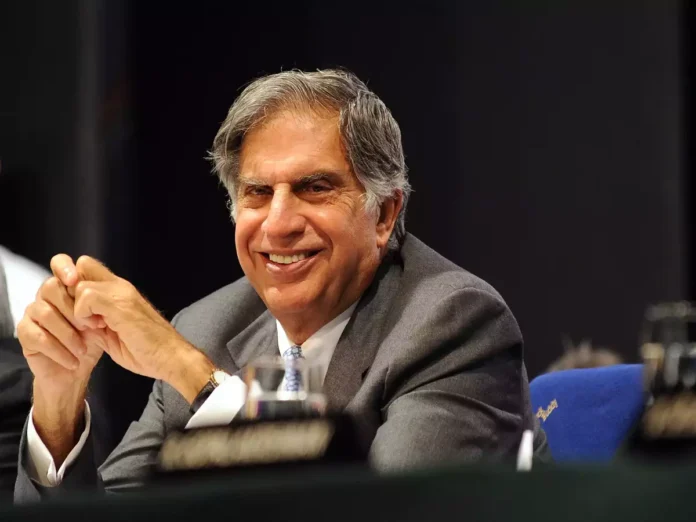Ratan Tata is one of the most admired business tycoons of India and Ratan tata as brand name reflects a sense of reliability, creativity and charity. Ratan Tata is India’s leading industrialist born December 28, 1937 in Bombay (now Mumbai), and was the chairman of Tata Sons Limited of the Tata group of companies. He built the Tata Group into a world class business conglomerate, but what makes Ratan Tata stand out is his modesty and his rigorous philanthropy.
Early Life and Education
Ratan Tata was born into one of India’s most prestigious families. The Tata family has a legacy of business leadership dating back to its founder, Jamsetji Tata, who established the Tata Group in 1868. Ratan was raised by his grandmother, Lady Navajbai Tata, after his parents separated when he was just 10 years old. Despite this challenging phase, he maintained close ties with his family.
Tata attended the Cathedral and John Connon School in Mumbai before moving to the United States, where he earned a degree in Architecture from Cornell University in 1962. He later completed the Advanced Management Program at Harvard Business School in 1975, equipping him with the knowledge and skills needed to lead one of the world’s largest conglomerates.
Transformational Leadership
Ratan Tata began his career in 1961 with Tata Group as a ‘‘general’ worker and was posted at the Tata Steel at Jamshedpur where he worked directly with the common employees of the factory. This early experience influenced his management approach as well as his attitude towards workers across the organizational hierarchy.
He was appointed the Chairman of Tata Sons in 1991 succeeding J.R.D. Tata in the post. Tata Group at that time was a number of affiliated companies that were not very integrated with each other. During the management of Ratan Tata, the group both integrated and diversified at an international level. He played a key role for the company to acquire many international brands such as Tetley from UK, Corus Steel from UK, Jaguar Land Rover from UK. The said moves put Tata in the league of global players and became a new dawn of Indian corporate strategy.
Ratan Tata’s greatest accomplishment may be the release of the Tata Nano in 2008, the world’s least expensive auto, intended for making car ownership possible for millions of Indians. Despite the fact that it did not generate the level of sales that was expected, the Nano was a signal of Tata’s willingness to think differently and to change the world.
Ethical Leadership and Humility
Ethical and humble are two adjectives that would best describe Ratan Tata when it comes to leadership style. He has never been interested in personal gains rather has always worked for the benefits of the community, which is the best culture that Tata Group has been embracing for several years.
After retiring in 2012, Ratan Tata also continued to influence the group’s philanthropic activities. The Tata Trusts are led by him and they own approximately 66% of Tata Sons’ share; all the profits are channelled back into charitable works. Across the spectrum covering healthcare, education, rural development, scientific research, and many more, Tata Trusts have served the needy millions.
Philanthropy and Social Impact
Ratan Tata is one of the most philanthropic CEOs I have heard of. During his tenure at the Tata Group he has involved the Group in several social initiatives particularly in education and health. A good example is the Tata Medical Center in Kolkata, a modern cancer hospital that caters for the poor.
He has also been instrumental in building up India’s innovation system. Till date, Ratan Tata has invested in many startups through Tata Trusts and his own money especially in technology and health care sector to foster the future generation of India entrepreneurs.
A Global Citizen
Ratan Tata is consciously a world citizen, admired for his accomplishments in the business world as well as in diplomacy and conflict resolution. He is a member of the boards of several worldwide organizations such as the Harvard Business School and the Carnegie Endowment for International Peace.
His personal and professional achievements have earned him numerous accolades, including India’s highest civilian honors: the Padma Bhushan in the year 2000 and Padma Vibhushan in the year 2008.
Conclusion
Ratan Tata is not only a manager but rather an outstanding strategist whose influence on the society and the business world cannot be overestimated. His leadership style, passion for ethical practices, innovation, and contribution to philanthropy still affects millions of people. In a world where corporate success is measured by the accumulation of profits no matter how they are made, Ratan Tata has proved that business and humanity can go together.
Ratan Tata’s legacy will not be judged on the profits of the Tata Group only but for the number of people he touched with his kind-heartedness and his philanthropic work.
